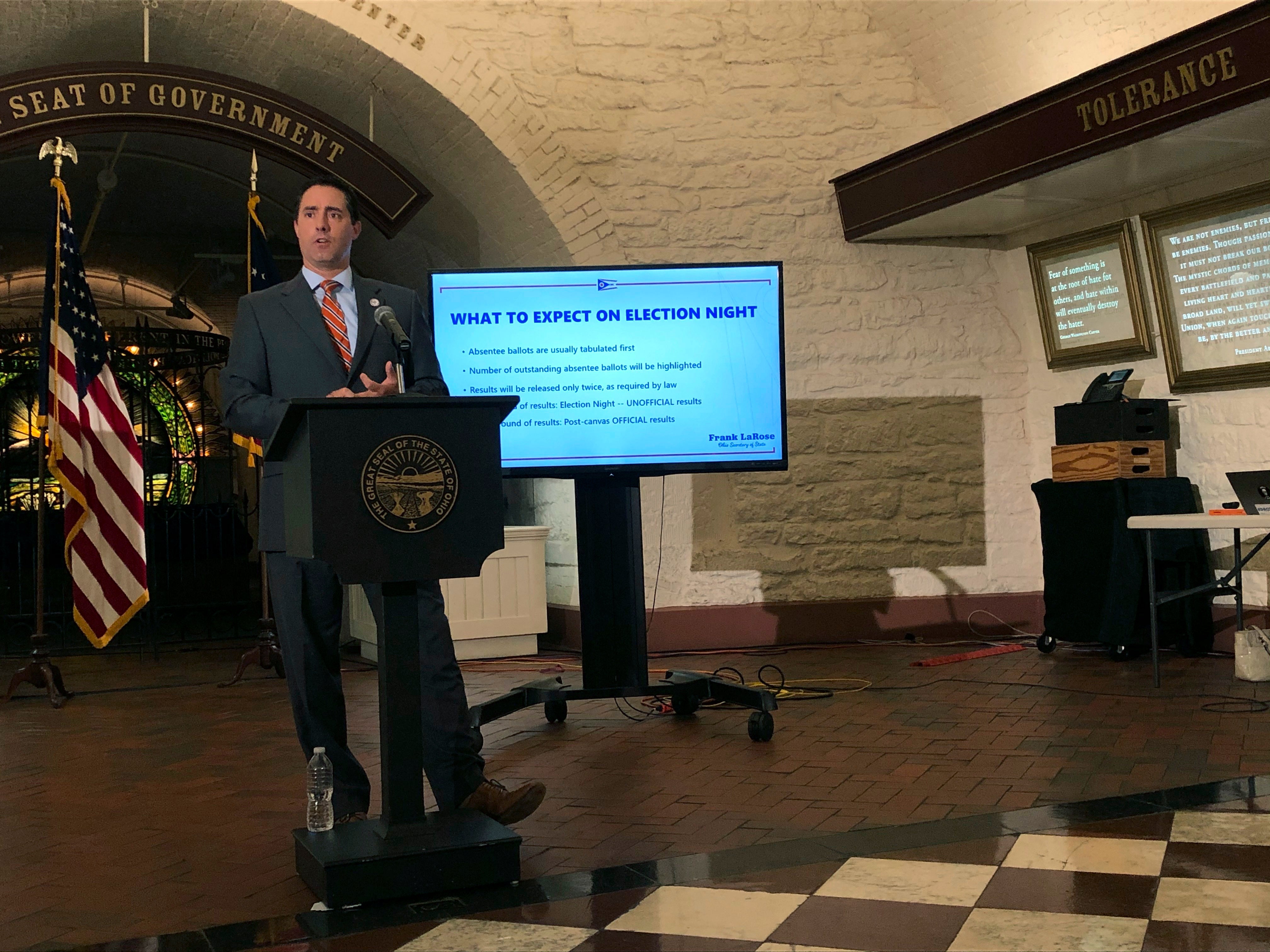Cybersecurity experts: Requesting ballots by email is safe
A group of leading cybersecurity experts told an Ohio court that absentee ballot applications can be safely transmitted using email

Your support helps us to tell the story
From reproductive rights to climate change to Big Tech, The Independent is on the ground when the story is developing. Whether it's investigating the financials of Elon Musk's pro-Trump PAC or producing our latest documentary, 'The A Word', which shines a light on the American women fighting for reproductive rights, we know how important it is to parse out the facts from the messaging.
At such a critical moment in US history, we need reporters on the ground. Your donation allows us to keep sending journalists to speak to both sides of the story.
The Independent is trusted by Americans across the entire political spectrum. And unlike many other quality news outlets, we choose not to lock Americans out of our reporting and analysis with paywalls. We believe quality journalism should be available to everyone, paid for by those who can afford it.
Your support makes all the difference.A group of leading cybersecurity experts told an Ohio court that absentee ballot applications can be safely transmitted using email, countering the secretary of state's assertions that the practice would open up voting in the presidential battleground to outside interference.
In a filing late Monday, eight experts in computer information and engineering from the Massachusetts Institute of Technology, Georgetown, Princeton and other universities joined the American Civil Liberties Union and the Brennan Center for Justice in asking a state appellate court to allow the ballot applications to be accepted by electronic means.
"Election officials can easily facilitate electronic submission of applications at little cost while minimizing associated security risks,” their filing said. “Ideally this should be done by a secure online portal, but it is also feasible to do so using email.”
That argument contrasts with the position expressed by Republican Secretary of State Frank LaRose, who said a judge's Sept. 11 ruling "rolls out the red carpet to Russian hackers — painting a giant bullseye on the back of our election system and upending the significant progress Ohio has made on elections cybersecurity.”
Franklin County Common Pleas Judge Stephen McIntosh’s decision granted the Ohio Democratic Party’s motion seeking to block a directive by LaRose prohibiting submission of absentee ballot applications by electronic means, including email or fax.
LaRose's order remains in effect, on orders of the 10th District Court of Appeals, while the state makes its case. Oral arguments are set for Thursday.
In its brief, the Ohio Democratic Party argues that LaRose and the state are making efforts to “overcomplicate the issues” in what is a clear question of law.
“The statute contains no language prohibiting the submission of absentee ballot requests in this manner or even specifying a manner for delivery" to the county election board, its attorneys argued.
LaRose is joined in defending the directive by Donald J. Trump for President Inc., the Republican National Committee, the National Republican Congressional Committee and the Ohio Republican Party.
The secretary has said he is confident the higher court will correct McIntosh's decision, which he said “injects chaos into what was already a challenging election for our county boards of elections.”
Despite strong lobbying by LaRose, Ohio still lacks an online ballot request system, opting instead to mail paper absentee ballot applications to every registered voter. As of now, county election boards are accepting completed applications only by mail or in person.
The state deadline to submit an application is noon Oct. 31. However, LaRose and the U.S. Postal Service have encouraged voters to act by no later than Oct. 27 to assure their ballot can be filled out and returned in time for the Nov. 3 general election.